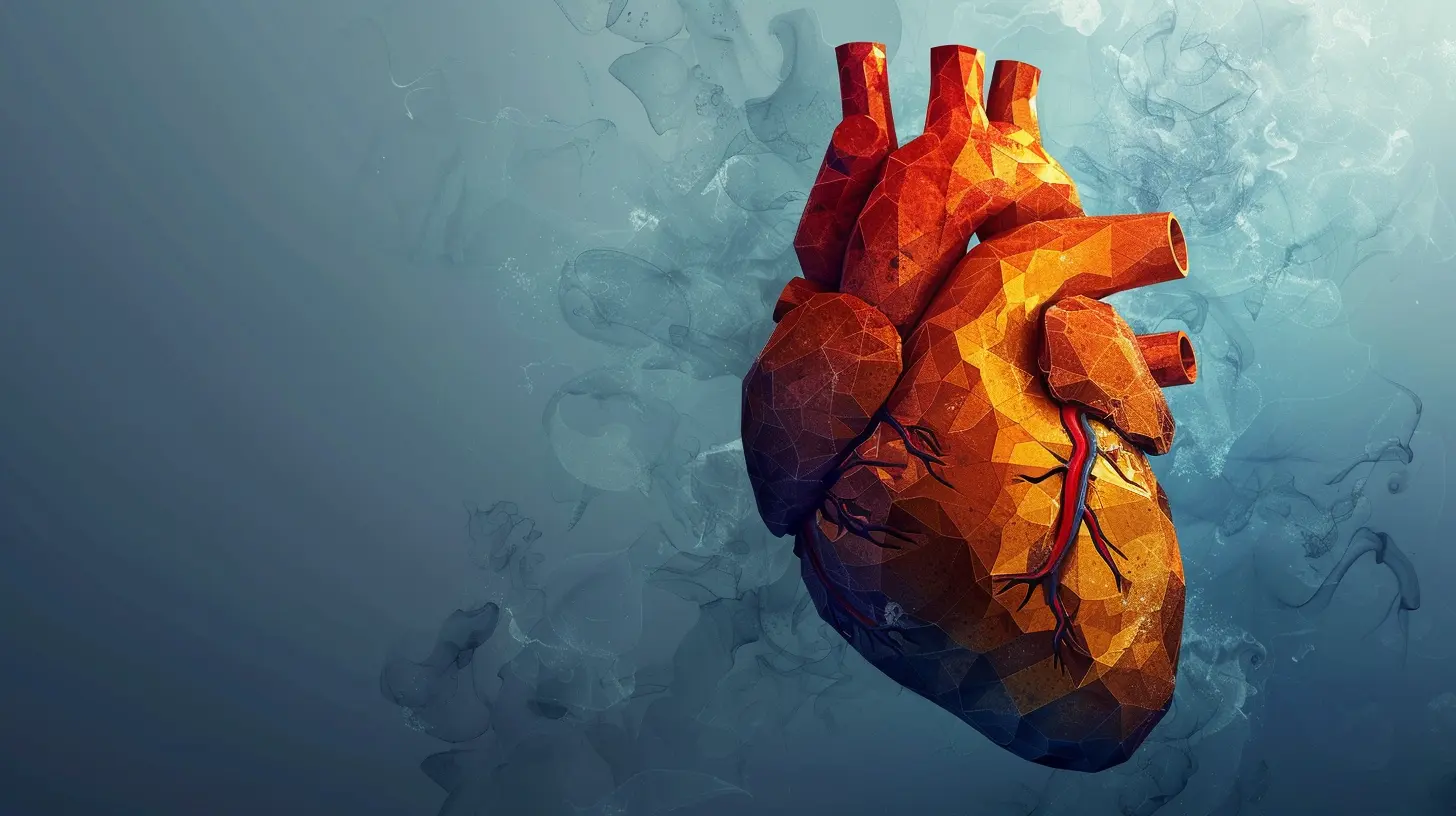Tuning into Your Body: When to Worry About Chest Pain
27 April 2025
We've all been there at some point—feeling a sharp twinge, a dull ache, or even a burning sensation in our chest, and suddenly our minds spiral into a million worst-case scenarios. Is it just indigestion? Did I pull a muscle at the gym? Or could it be something more serious, like a heart attack? Chest pain can be a murky and terrifying symptom to untangle, but learning to listen to your body and knowing the red flags can make all the difference. In this post, we’ll break down chest pain step by step so you’ll know when to shrug it off and when to seek medical attention ASAP.
Understanding Chest Pain: It’s Not Always a Heart Problem
Okay, first things first: Just because you feel something funny in your chest doesn’t automatically mean you're having a heart attack. The chest is a crowded space that houses everything from your heart and lungs to your ribs, muscles, and digestive organs. That said, chest pain can come from all sorts of culprits—some completely harmless, others requiring immediate attention.But here's the catch: Your body doesn’t always send clear signals. Sometimes heart-related chest pain disguises itself as heartburn, and vice versa. Frustrating, right? That’s why it’s so important to recognize your symptoms and their context.
The Different "Flavors" of Chest Pain
Think of chest pain like a mystery novel, with each sensation giving you a clue to solve the puzzle. Is it sharp and stabbing? Heavy and crushing? Or maybe it feels like something's gnawing away at your insides? Let’s break it down:1. Sharp, Stabbing Pain
This type of pain often gets people panicked. The good news? It’s usually not your heart. The bad news? It could still mean something’s up with your lungs, muscles, or even your nerves.- Possible Causes: Muscle strain, costochondritis (inflammation of the cartilage near your ribs), or even a pinched nerve. Pneumonia or a collapsed lung can also cause this sensation, though those usually come with other symptoms like trouble breathing.
- When to Worry: If the pain worsens with deep breaths, movement, or coughing, see your doctor. And if it’s accompanied by sudden breathlessness or a rapid heart rate, don’t wait—call emergency services.
2. Pressure or Squeezing Pain
This is the classic “elephant sitting on your chest” feeling people describe when they’re having a heart attack. But, plot twist: It could also be acid reflux or anxiety.- Possible Causes: Heart attack, angina (reduced blood flow to your heart), or gastroesophageal reflux disease (GERD). Panic attacks can also mimic this sensation because they cause your chest muscles to tense up.
- When to Worry: If the pain radiates to your arms, back, neck, or jaw, or if you feel nauseous and sweaty, these are major heart attack warning signs. Call 911 immediately.
3. Burning Pain
Feeling like you’ve swallowed fire? That’s usually a dead giveaway your digestive system is involved.- Possible Causes: Heartburn, acid reflux, or even a stomach ulcer. Spicy food, overeating, and alcohol can all kickstart this kind of pain.
- When to Worry: While it’s usually nothing serious, don’t ignore it if the burning sensation evolves or persists. Sometimes GERD can lead to damage in your esophagus over time.
4. Aches or Dull Pain
It’s easy to brush off dull, nagging pain as “no big deal,” but it shouldn’t always be ignored.- Possible Causes: Muscle strain, poor posture, anxiety, or even early heart disease. Chronic pain might also signal something more unusual, like an aneurysm (a weakened blood vessel).
- When to Worry: If it becomes constant, worsens when you exert yourself, or if it just feels “odd” and you can’t shake the feeling something’s wrong, schedule a check-up.
Heart vs. Non-Heart Causes of Chest Pain
Let’s make this simple: Heart-related chest pain is almost always accompanied by other symptoms. If it’s your heart, you might also feel short of breath, nauseous, lightheaded, or excessively fatigued. Think of your heart as a drama queen—it rarely acts alone.Other non-heart causes tend to be more isolated. For example, a pulled chest muscle will hurt when you move or press on the area. Acid reflux will flare up after eating a heavy meal. Anxiety-related pain often comes with racing thoughts or tightness that goes away after you calm down.
Here’s a quick comparison chart:
| Heart-Related Pain | Non-Heart Pain |
|----------------------------------------|-------------------------------------------|
| Heavy, crushing, or squeezing sensation | Sharp, localized, or burning sensation |
| Pain spreads to arms, jaw, or back | Pain stays in one spot |
| Comes with nausea, sweating, or fatigue | No additional symptoms or mild discomfort |
| Doesn’t improve with rest or position | Gets better with movement or medication |
When to Play It Safe: Chest Pain Red Flags
So, when should you stop Googling symptoms and actually head to the ER? Here are some red flags you should never ignore:1. Pain That Radiates: Any chest pain that spreads to your left arm, jaw, back, or neck could be a heart attack.
2. Shortness of Breath: If you’re gasping for air and it feels like you’ve just sprinted a mile, seek help immediately.
3. Sudden, Severe Pain: A tearing or ripping sensation could mean an aortic dissection (a life-threatening condition).
4. Constant Pain That’s Getting Worse: If the pain doesn’t go away with rest or comes back stronger, it’s time to call a doctor.
5. Accompanying Symptoms: Keep an eye out for nausea, dizziness, cold sweats, or fainting. These are classic heart attack signs that shouldn’t be ignored.
Remember, it’s always better to overreact and get checked out than to dismiss something serious. Your health isn’t worth the gamble.
What Should You Do If You Have Chest Pain?
You’re probably thinking, “Okay, so what do I do if I feel chest pain out of nowhere?” Great question. Here’s a step-by-step guide to manage the situation:1. Stop What You’re Doing: Sit down and rest. Don’t push through the pain—it’s your body’s way of telling you to slow down.
2. Take Note of Your Symptoms: Is the pain sharp or dull? Does it come and go? What were you doing when it started?
3. Try Home Remedies: If you suspect acid reflux, try sipping water or an antacid. For muscle pain, apply a heat pack or take over-the-counter pain relievers.
4. Don’t Hesitate to Call for Help: If the pain persists, worsens, or comes with red-flag symptoms, call 911 or your local emergency number. Better safe than sorry.
Prevention: Keeping Chest Pain at Bay
Now that you’re clued in, let’s talk about prevention. While some causes of chest pain are out of your control, a few lifestyle tweaks can minimize your risk:- Eat Heart-Healthy Foods: Stick to whole grains, lean protein, and plenty of fruits and veggies to support cardiovascular health.
- Stay Active: Regular exercise keeps your heart strong, your stress in check, and your weight under control.
- Manage Stress: Practice mindfulness, yoga, or deep breathing exercises to keep anxiety and chest-tightness at bay.
- Limit Alcohol and Smoking: Both can irritate your esophagus and damage your heart over time.
- Sleep Well: Poor sleep is linked to higher rates of heart disease, so clock in those Zzzs.
Your body is like a car—take care of it, and it’ll take care of you.
Final Thoughts: Listen to Your Body
Here's the takeaway: chest pain isn't something to shrug off, but it's not always something to panic about either. Your body is constantly sending you signals, and learning to tune into those messages is a game-changer for your health. At the end of the day, if you’re ever in doubt, trust your gut (and your doctor). Worrying too much is far better than realizing you should’ve acted earlier.So, the next time you feel that weird twinge in your chest, don’t freak out—just ask yourself, “What’s my body trying to tell me?” Then go from there.
all images in this post were generated using AI tools
Category:
Healthy HeartAuthor:

Tiffany Foster
Discussion
rate this article
4 comments
Joy McTavish
Great insights! Thank you for reminding us to listen to our bodies.
May 11, 2025 at 4:17 AM

Tiffany Foster
Thank you! I'm glad you found it helpful. Listening to our bodies is so important!
Zina Sawyer
Chest pain isn't just a bad taco! Listen up: your body is dropping hints. Ignore the warning signs, and you might just end up with a ticket to the ER!
May 10, 2025 at 3:38 PM

Tiffany Foster
Absolutely! Chest pain should never be taken lightly. Always pay attention to your body's signals and seek medical advice when in doubt. Your health is too important to ignore!
Anisa Henson
Listen to your ticker, folks!
May 4, 2025 at 4:23 AM

Tiffany Foster
Thank you! It's crucial to pay attention to our bodies and seek help when something feels off.
Jennifer Lambert
Listening to your body is non-negotiable. Chest pain isn't just a nuisance; it demands your attention. Don't brush it off or downplay it—prioritize your health and seek help when it matters most.
April 29, 2025 at 4:02 AM

Tiffany Foster
Absolutely! Prioritizing your health is crucial—chest pain should never be ignored. Always seek medical attention when in doubt. Your well-being comes first!



